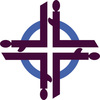World Day of Prayer is a global ecumenical movement led by Christian women
who welcome you to join in prayer and action for peace and justice.
who welcome you to join in prayer and action for peace and justice.
I Will Give You Rest: Come
Program written by the
World Day of Prayer Committee of Nigeria for 2026
Matthew 11:28-30
World Day of Prayer Committee of Nigeria for 2026
Matthew 11:28-30
The 2026 World Day of Prayer materials from Nigeria bring us a powerful invitation drawn from Matthew 11:28-30. At a time when people worldwide are carrying heavy burdens, our Nigerian sisters offer profound insights into finding rest in God.
Through their exploration of different kinds of burdens - shame, systemic oppression, religious persecution, poverty and despair - the writers help us understand both the weight of human suffering and the depths of divine rest. Their work shows us that true rest isn't just about physical relief, but about transformation through God's grace and community support.
You'll find this theme beautifully expressed across all program components. The Worship Service features a playlet about a young girl named Chioma and stories of three Nigerian women: Beatrice, Jato, and Blessing. Their experiences reveal how God provides rest through community support, faith, and hope.
The Bible Study explores divine rest from creation to Jesus' time, examining wisdom traditions and Jesus’ transformation of rest from rigid rules to liberating mercy. The Children's Program includes prayers, storytelling, and other activities that help children understand how they can both receive and extend God's rest to others. Through interactive elements, children learn about Nigeria's rich culture while exploring what it means to bring their burdens to God and help others who are weary.
The Country Background provides comprehensive information about Nigeria's history, culture, and contemporary challenges, with special attention to the achievements and struggles of Nigerian women. Original music composed for the program includes a moving theme song by Chisom R. Chukwumerije, written especially for this World Day of Prayer service. The song invites those who are weary and oppressed to find comfort and rest in God. The artistic work of Gift Amarachi Ottah beautifully captures the theme through her depiction of burdens carried by women from diverse backgrounds.
The WDP Nigerian committee has woven together their cultural wisdom with the universal need for rest. Through symbols like the calabash bowl, which represents both daily sustenance and divine provision, they remind us how God meets us in our weariness. As we prepare for WDP 2026, may we learn to embody Jesus’ invitation: ‘Come to me, all you who are weary.’ Together, let us become channels of God’s rest in our troubled world.
Through their exploration of different kinds of burdens - shame, systemic oppression, religious persecution, poverty and despair - the writers help us understand both the weight of human suffering and the depths of divine rest. Their work shows us that true rest isn't just about physical relief, but about transformation through God's grace and community support.
You'll find this theme beautifully expressed across all program components. The Worship Service features a playlet about a young girl named Chioma and stories of three Nigerian women: Beatrice, Jato, and Blessing. Their experiences reveal how God provides rest through community support, faith, and hope.
The Bible Study explores divine rest from creation to Jesus' time, examining wisdom traditions and Jesus’ transformation of rest from rigid rules to liberating mercy. The Children's Program includes prayers, storytelling, and other activities that help children understand how they can both receive and extend God's rest to others. Through interactive elements, children learn about Nigeria's rich culture while exploring what it means to bring their burdens to God and help others who are weary.
The Country Background provides comprehensive information about Nigeria's history, culture, and contemporary challenges, with special attention to the achievements and struggles of Nigerian women. Original music composed for the program includes a moving theme song by Chisom R. Chukwumerije, written especially for this World Day of Prayer service. The song invites those who are weary and oppressed to find comfort and rest in God. The artistic work of Gift Amarachi Ottah beautifully captures the theme through her depiction of burdens carried by women from diverse backgrounds.
The WDP Nigerian committee has woven together their cultural wisdom with the universal need for rest. Through symbols like the calabash bowl, which represents both daily sustenance and divine provision, they remind us how God meets us in our weariness. As we prepare for WDP 2026, may we learn to embody Jesus’ invitation: ‘Come to me, all you who are weary.’ Together, let us become channels of God’s rest in our troubled world.
Site powered by Weebly. Managed by Lunarpages

